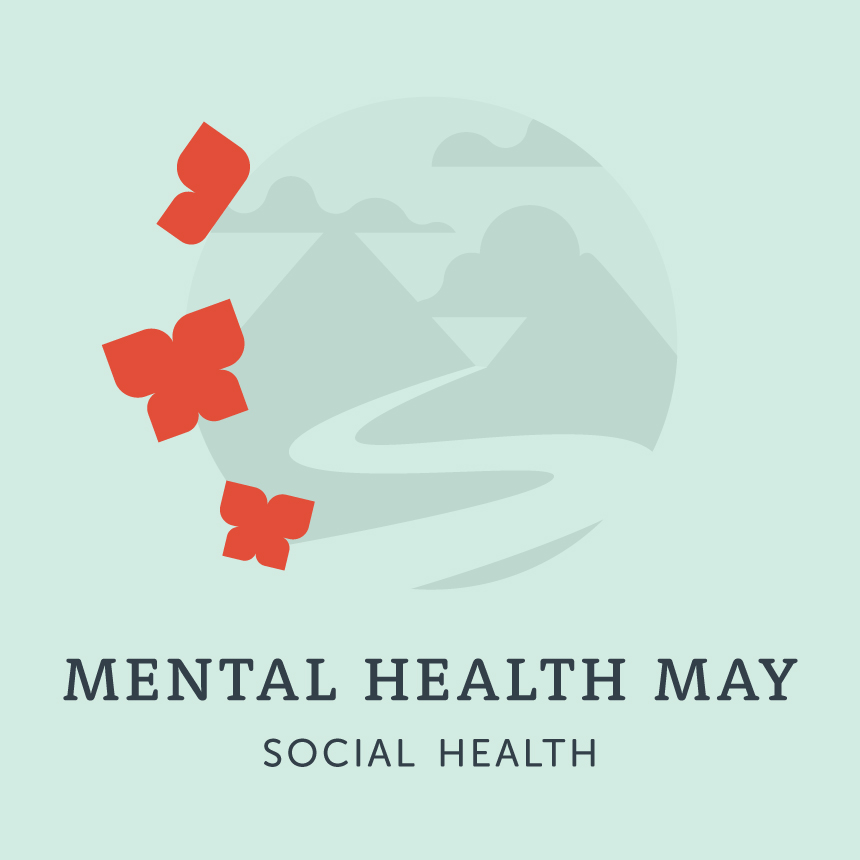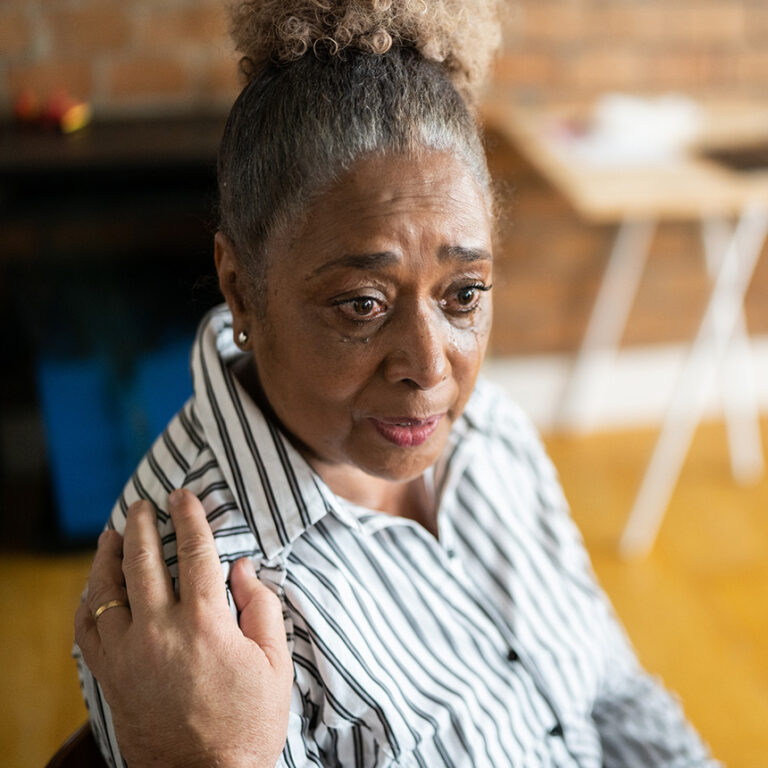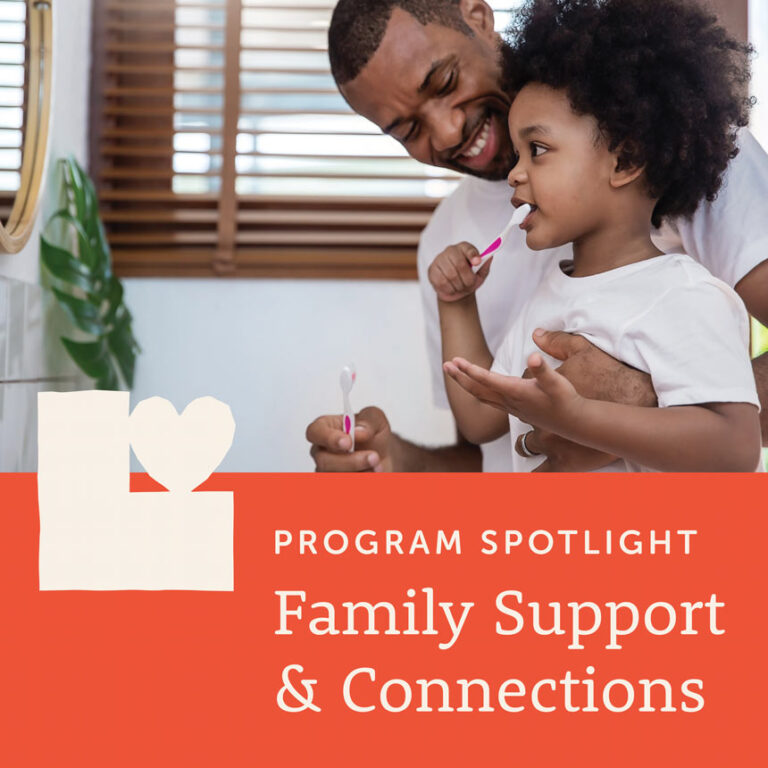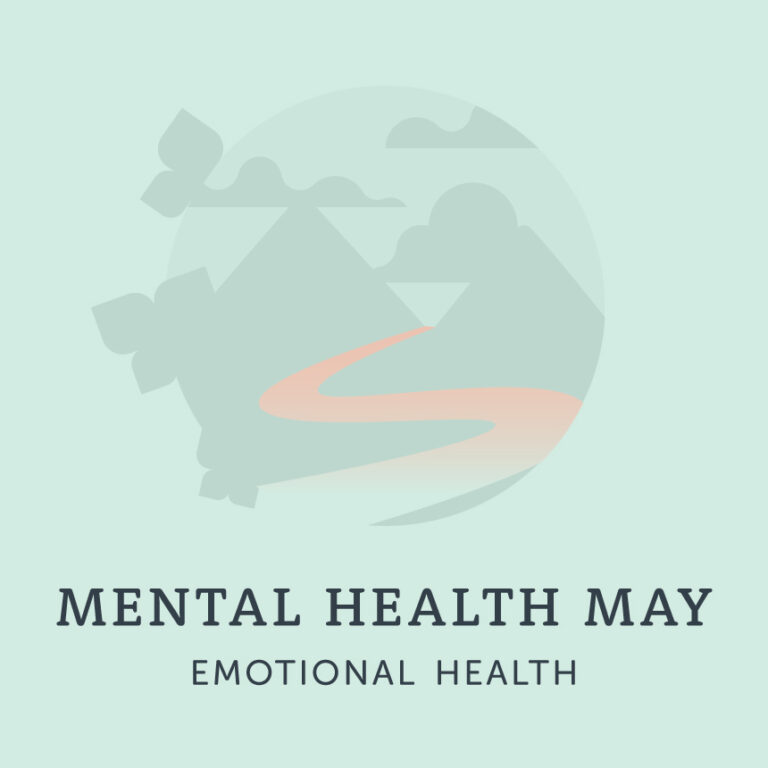
This Mental Health Awareness Month, we are looking at each of the four pillars of mental health: physical health, cognitive health, emotional health, and social health.
When asked about your overall health, the first thing you likely think of is your physical health. How is your blood pressure? Do you exercise? Maybe you even consider your mental health. But evidence suggests there is another aspect to your health that can have an even greater effect on your overall wellbeing: social health.
What is social health?
Social health, sometimes called social connection, refers to the meaningful relationships in your life and your ability to interact with other people. This can include:
- Friends
- Family
- Romantic relationships
- Neighbors
- Coworkers
- Community groups
The number, intensity, and quality of these relationships are all factors that impact your social health. If you do not have many strong relationships, or if your connections to others are strained or challenging, your social health suffers. This can lead to social isolation or loneliness.
Research shows that social isolation and loneliness are just as deadly as some of the most dangerous physical conditions, such as heart disease or stroke. In fact, a recent report says that “loneliness and social isolation increase the risk for premature death by 26% and 29%, respectively.”
Social connection is key to survival
Stanford Lifestyle Medicine argues that we are hard-wired to be with others. Because early humans relied on one another to survive, our brains interpret loneliness as a warning signal that something is wrong. Our body responds with chronic stress, which then impacts our mental and physical health.
In other words: “Social connection is a fundamental human need, as essential to survival as food, water, and shelter,” according to the U.S. Surgeon General’s advisory. While social health gets far less attention than physical or mental health, the 80-page report lays out what studies tell us about how important social health is. For example:
Stanford Lifestyle Medicine argues that we are hard-wired to be with others. Because early humans relied on one another to survive, our brains interpret loneliness as a warning signal that something is wrong. Our body responds with chronic stress, which then impacts our mental and physical health.
In other words: “Social connection is a fundamental human need, as essential to survival as food, water, and shelter,” according to the U.S. Surgeon General’s advisory. While social health gets far less attention than physical or mental health, the 80-page report lays out what studies tell us about how important social health is. For example:
Physical health
- Social disconnection is more dangerous than smoking up to 15 cigarettes or drinking 6 alcoholic beverages daily.
- Loneliness increases heart attack risk by around one-third.
- Quality social health can improve your immune system function. One study found that people with strong social ties were four times less likely to develop a cold than those with lower social health.
Mental health
- Adults who report feelings of loneliness are more than twice as likely to develop depression.
- Lonely older adults experience cognitive decline 20% faster than older adults who did not report loneliness.
It’s time to give social health the attention it deserves. Social connection is so vital to our health that the U.S. Surgeon General said we are in an “epidemic of loneliness and isolation” in 2023.
Social connection is a significant predictor of longevity and better physical, cognitive, and mental health, while social isolation and loneliness are significant predictors of premature death and poor health.
“Our epidemic of loneliness and isolation,” U.S. Surgeon General’s Advisory on the Healing Effects of Social Connection and Community, 2023
Social health is getting worse
Findings show we are less connected now than just one or two decades ago. In that time:
- The percentage of Americans who say they have 10 or more close friends has gone down by 20%.
- For young people, the amount of time spent with friends has dropped nearly 70% over the past 20 years.
- People spend more time alone now than ever.
There are many factors that contribute to these changes, such as:
- Technology isolates us. We spend an average of six hours each day online. Even when we are with others, our devices often distract us.
- Marriage rates and family size are in decline, impacting those relationships.
- Financial stress can mean taking on extra jobs or hours. This limits time to relax with friends or family.
How can you boost your social health?
The first thing to do is to learn more about social health! Check out the resources at the end of this article for more details.
Next, take some recommended steps:
- Join a community group. This can be an art class, a professional group, a volunteer organization – anything that gives you meaning and purpose.
- Step away from behaviors that increase isolation, such as having unhealthy relationships or using social media too much.
- Nurture the relationships you have by prioritizing regular, high-quality time with others. Remove distractions and be present.
There are more guidelines available for parents and caregivers, educators, workplaces, and community organizations. They also encourage you to share updates about your social health with your doctor and to seek help if you are struggling. LifeWorks NW has qualified therapists who can provide the care you need. Call 503-645-9010 or fill out our contact form for details.
LEARN MORE
- Social interaction is critical for mental and physical health, New York Times
- What is social health and how does it impact longevity?, Stanford Lifestyle Medicine
- What is the importance of social connection?, Office of the Surgeon General, Health and Human Services (PDF)
- A quick start to 'social health,' and why you should care about it, Forbes
- Our epidemic of loneliness and isolation, U.S. Surgeon General’s Advisory, 2023 (PDF)
- What is social health? The little-known idea that could make all the difference, The Guardian










